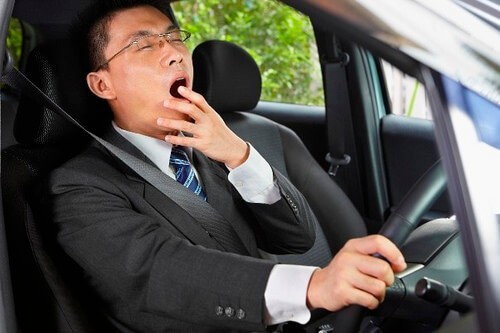Drunk driving and distracted driving get all of the attention, but drowsy driving is often just as deadly. In fact, fatigued drivers caused almost 850 deaths nationwide in 2014, according to statistics compiled by the National Highway Traffic Safety Administration (NHTSA). A recent Harvard University study found that truckers and other commercial drivers are at a particularly high risk, with about 20 percent of crashes linked to driver fatigue.
And this may not even be the whole story, according to the National Sleep Foundation. When a fatigued driver suffers incapacitating injuries, it is often difficult to determine whether he drifted off behind the wheel. Similarly, drivers rarely admit to feeling drowsy after causing a serious crash.
One reason that many motorists fail to take the risk of drowsy driving seriously is because there are a number of common myths about the topic, and most of them downplay the danger. Some of these myths include:
Click to navigate this page:
Toggle1. Fatigued Means Sleepy
Many drivers mistakenly believe that they cannot be fatigued unless they feel sleepy. Fatigue comes on slowly, and by the time you are yawning, spacing out, or dozing off behind the wheel, you have lost the ability to use your best judgment and drive safely.
Early signs of fatigue include slowed reaction times, poor decision making, and difficulty remembering directions, or missing exits you regularly take. If you display any of these symptoms, you should get off the road as soon as possible to avoid the risks of fatigued driving.
2. You Can Stock Up on Rest Beforehand
People tend to think they can stock up on rest, and then catch up on sleep later. However, this is not how the body works.
While it is vital to get a good night’s rest the night before a trip, the consistency of your sleep pattern is actually more important. You need to ensure you sleep at least eight hours for several nights in a row leading up to your trip.
This can be difficult for those who do shift work, have young babies at home, or have other scheduling issues. In addition, sleep apnea and other sleep disorders often make it difficult to get consistent sleep.
3. Fatigued Driving is a Nighttime Issue
It is not a myth that fatigued driving crashes are most common between midnight and 6 a.m. However, driver fatigue is not something you only need to worry about after dark.
Another dip in alertness is common during the mid-afternoon, between 2 p.m. and 4 p.m. If you are driving during this time, you may want to consider stopping for a snack or just taking a break to stretch your legs. Of course, fatigued driving accidents can occur at any time, so staying aware of your level of alertness is always important.
4. Young People Can Power Through
Many young people view fatigued driving as something that only happens to older drivers. However, teens and young adults are actually at an increased risk for drowsy driving accidents. Their social habits — which often involve late nights — are partially to blame.
However, teens also tend to need more sleep than adults since their bodies are still developing. This combination of risk factors makes young people extremely susceptible to fatigued driving.
5. Driving While Taking Prescription Medications Is OK
Just because a doctor prescribes a medication does not mean that it is safe to drive while taking it. Many over-the-counter and prescription drugs list can cause drowsiness, making driving while on them extremely dangerous.
Always read all warnings about the possible side effects of any medication. If your doctor prescribes a medication with this type of warning, you may need to arrange alternate transportation.
How can I reduce my risk?
In order to avoid fatigued driving accidents, the NHTSA recommends that you have a plan in case you become fatigued on a road trip. Plan regular stops along your route, and identify several hotels along the way where you can stop for the night if necessary.
If you are on a shorter trip and your destination is close by, a cup of coffee and a 20 minute nap in your car can help you stay alert for a short time.
Fatigued Driving Accidents and Liability
Fatigued drivers are at an increased risk of causing a crash, thanks to a slowed reaction time and impaired decision-making skills. Even if the driver did not know s/he was dangerously fatigued, s/he still behaved negligently. This means s/he is liable for the injuries sustained in the crash, as well as any property damage that occurs.
In most Denver fatigued driving accidents, the drowsy motorist’s auto insurance pays out to cover the medical treatment, lost wages, and other losses sustained by the victims.
Call the Law Offices of Dianne Sawaya, LLC for Help After A Denver Accident
If you suffered injuries in a Denver fatigued driving accident, having a skilled auto accident attorney on your side is key in getting the compensation you deserve.
The attorneys at the Law Offices of Dianne Sawaya, LLC can help you sort out your legal options, and provide you with smart, aggressive, and compassionate representation. Call us today at 303-758-4777 to get started
 GET YOUR FREE CASE REVIEW
GET YOUR FREE CASE REVIEW  SERVING ALL OF COLORADO
SERVING ALL OF COLORADO  303.758.4777
303.758.4777
